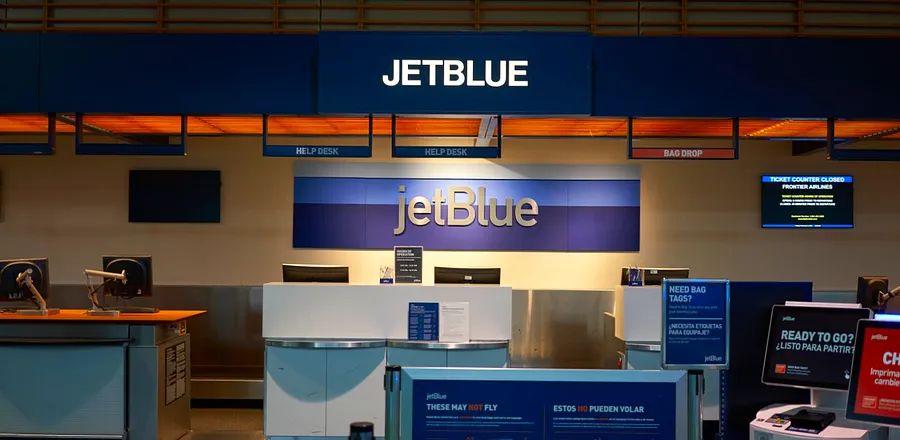JetBlue Introduces Surge Pricing for Checked Luggage—Here’s What It Means for Travelers

Recently, JetBlue discreetly raised its fees for checked baggage and implemented what could be the first surge pricing model in the industry, adding additional charges for checked bags during busy travel times.
Beginning April 11, JetBlue will impose an additional $5 fee for any checked bag during these peak travel periods, which the airline defines as most of spring, nearly all summer, the fall and winter holidays, and even mid-February. In total, these peak dates amount to 145 days, or approximately 40 percent of the year.
To complicate matters, JetBlue’s baggage page now features a matrix with eight different pricing options for a single checked bag when traveling on a basic fare. The varying costs depend on how far in advance the bag is checked, the travel dates, and the destination. Different fare classes also come with varying luggage fees or exemptions.
Checked baggage fees range from $35 for the first bag (one-way) when checked more than 24 hours in advance during an off-peak time for a domestic flight, to $70 when checked at the airport for a transatlantic journey— with four other potential prices in between. A second bag starts at $50 and can escalate to a staggering $125 per bag one-way at the highest pricing tier. A third checked bag (perfect for a family ski trip) can cost up to $210 per flight, making you reconsider your travel plans.
Although airlines have implemented demand-based pricing for tickets for years, this range of baggage fees might be excessive for some customers, according to at least one industry expert. “Dynamic pricing relies on the ability to adjust prices in a way that is clear to consumers,” stated Jay Sorensen, president of the airline consulting firm IdeaWorksCompany, in an email to Dinogo. “Any revenue strategy that disregards consumer transparency and the ability to make informed decisions will likely face challenges... I’m not a supporter of these hikes and believe they will lead to more issues with carry-on luggage.”
JetBlue defended these fluctuating baggage fee hikes in an email statement to Dinogo. “While we don’t enjoy raising fees, we are making these changes to restore profitability and offset rising costs. By adjusting fees for additional services utilized by certain customers, particularly during peak demand periods for limited cargo space, we can keep our base fares as low as possible,” the airline explained.
However, a JetBlue base fare to Europe that’s “as low as possible” could now come with a round-trip surcharge of $390 if you’re checking two bags.
JetBlue is not the only airline to raise baggage costs this year, as several airlines have recently increased their rates. In 2023, U.S. airlines generated over $5.5 billion in baggage fees, according to the U.S. Department of Transportation, making this a significant source of revenue for airlines.
Since baggage fees are not applied to every ticket, these costs are excluded from the airfares displayed online, complicating the process for consumers to compare final prices—especially against Southwest Airlines, which remains the only major airline without baggage fees.
Customers do have several ways to sidestep checked bag fees (such as using branded credit cards or maintaining frequent flyer status), with the most straightforward option being to avoid checking a bag altogether. However, airlines are complicating this with budget fares that don’t permit carry-ons, stricter size and weight limits for carry-on luggage, and the usual chaos of passengers vying for overhead bin space during boarding. “I advise my airline clients to refine the current baggage process before altering the fee structure,” remarked Sorenson from IdeaWorks, “and airlines are still far from achieving carry-on baggage perfection.”
While there’s ongoing debate about whether surge pricing for luggage will become commonplace, it’s safe to say that we are still quite a distance from reaching “carry-on baggage perfection.”
Evaluation :
5/5



